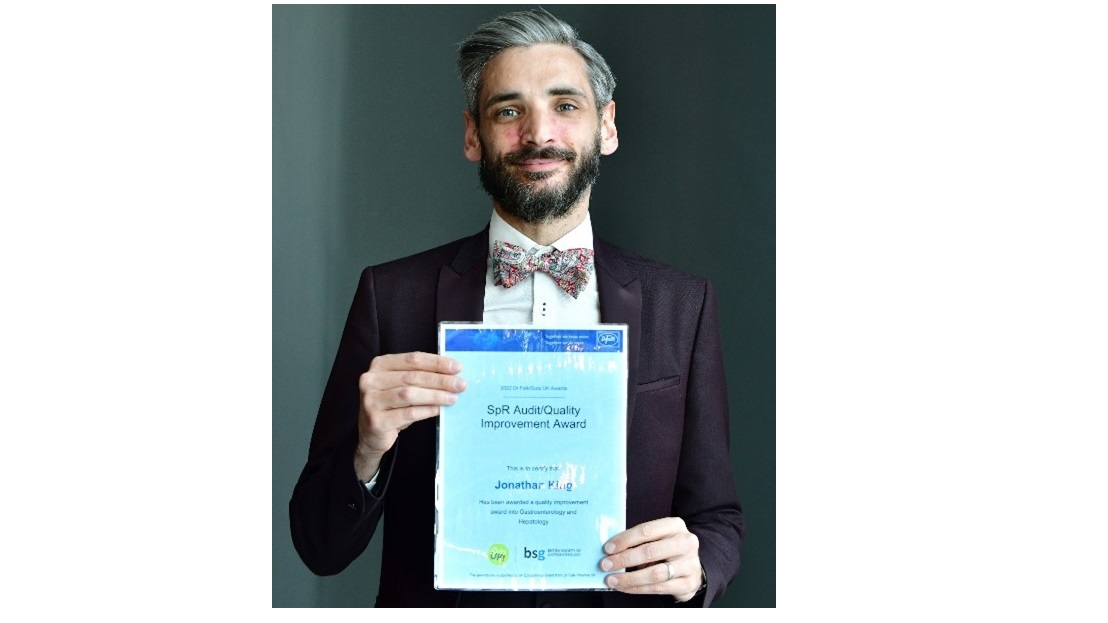
An RFL doctor has been awarded £8,600 to create videos that will help patients who do not speak English better understand their procedures.
Dr Jonathan King, a specialist registrar in gastroenterology, hopes the videos will improve health outcomes for non-English speakers, who often face disadvantages due to language barriers.
He received the funding as part of the Dr Falk Pharma/Guts UK quality improvement award, which was presented at the British Gastroenterology Society's annual meeting last month.
Dr King said: “We know that not speaking the language of your healthcare practitioner puts you in a very vulnerable position and the videos could be a useful tool to potentially reduce or supplement current translation services.
“One of the areas the Black Lives Matter movement brought up was the healthcare inequality for people of colour, for many of whom English is not their first language.
“My plan is firstly to develop videos in two of the most commonly spoken foreign languages to help consent patients for an endoscopy. These videos will describe the procedure in depth and will explain the risks and benefits and the anaesthetic options.
“The videos will also ask for legal consent, allowing the patient to select answers, all in their native language. The answers will be listed in English at the end so they are understood by the doctor. By delivering this service we will be able to provide non-English speaking patients with the same level of care as those who are fluent in English.”
The goal is for the videos to be used by the Royal Free Hospital and Chase Farm Hospital endoscopy units.
On receiving the award, Dr King added: “I’m humbled and excited - one of my passions is to improve the patient journey by incorporating technology in medicine in partnership with industry.”
Dr King’s project supervisor, Dr Christos Toumpanakis, consultant in gastroenterology and neuroendocrine tumours at the RFL, said: “Good quality medicine needs a well-informed patient and certainly, in endoscopy, it is very important that the patient understands the processes and potential complications of the procedure. However, in a multicultural society, language barriers such can sometime present a challenge to achieving this.
“Dr King’s proposed project uses technology to provide a simple but effective solution to this unmet need. I think it is a brilliant idea and I am extremely enthusiastic about using it in our clinic as it has huge potential to improve patient education and care generally.”
 Translate
Translate